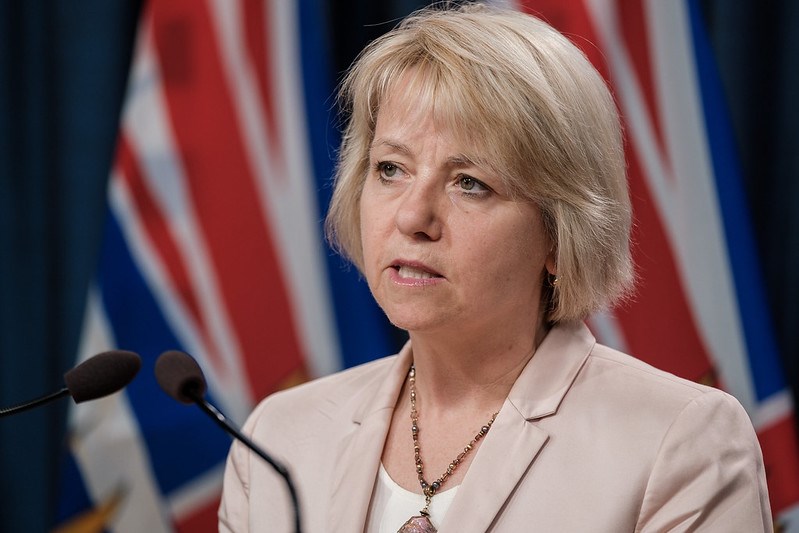Not to rush to a generalized conclusion, but the COVID-19 pandemic has drawn a clear line between both the concepts and practices of “mindfulness” and “mindlessness.”
That’s not just about existing divisions in our society, but is more about those upon whom we rely upon for leadership and guidance in a time of crisis and upon whom the political, social and economic stability of our country’s future rests.
That guidance and leadership influences the rest of us and our behaviour for better of worse.
“Mindfulness” gets a bad rap as some kind of hippy-dippy wannabe Zen Buddhism practice, but in fact mindfulness simply refers to a state of active, open attention to the present, the ability to live and accept the real world.
As we observe the words and actions of a variety of leaders during a crisis such as the COVID pandemic, the distinction becomes clearer.
To live mindfully is to live in the moment and to reawaken oneself and others to the present, as opposed to dwelling on the past.
Philosophers like Soren Kierkegaard describe this state as “existentialism,” meaning, in unpretentious terms, what happens when an individual is continually faced with diverse possibilities from among which the existent (i.e., the human individual) must make a selection to which he/she must then commit.
Big word, simple meaning.
Dr. Bonnie Henry is an example of a softly spoken person who simply relates the facts of the situation. She is a model of mindfulness. As Marshall McLuhan might have put it, she is both the medium and the message.
Mindfulness is the ability to link cause and effect or even action and consequence socially, economically, personally and politically.
Mindlessness, on the other hand, is not intended as a pejorative term but simply describes a state of being unmindful or heedless.
Mindlessness is toxic for a democracy.
As Costica Bradatan, Professor of Humanities at Texas Tech University wrote recently in the New York Times: “Democracy is for the Gods and it should be no surprise that humans cannot sustain a democracy,” adding that “world history, for the most part, is the story of excessively mindless self-assertive individuals in search of various sceptres.”
Bradatan points out that even in a steadily failing once-upon-a-time democracy such as the United States of America, it doesn’t help matters that a self-serving individual, despite all flags or warning, has been enthroned as leader. Others seem only too eager to mindlessly submit to his mindlessness.
After all, mindlessness is easier than thinking.
Interestingly, most academic articles about mindfulness relate mindlessness to an absence of emotional intelligence. Emotional intelligence, unlike linguistic intelligence, logical or mathematical intelligence, musical intelligence, kinesthetic body intelligence or spatial-visual intelligence explains why the people we tend to admire and identify with most comfortably in life display other-centredness and kindness rather than cruelty in their interactions with others.
Mindlessness often dissipates with maturity, and sometimes, to the dismay and frustration of the mindful, is unintentionally common among young (and sometimes older) emerging minds. “Good judgment,” as the saying goes, “comes from experience and too often experience comes from bad judgment.”
All well and good, but what does any of this have to do with individual and cultural reactions to the COVID-19 pandemic?
Some people, it seems, are approaching the pandemic risks mindfully, while others, frustrated because they can’t gather in groups or do the familiar self gratifying things that provide them with immediate short-term pleasure, resist experienced fact-based advice mindlessly.
In this time of COVID-19, many of us can relate to the annoyance of having experienced a loss of control that has been replaced by a great sense of vulnerability for ourselves and others, along with a whirlwind of challenging emotions, including fear, guilt and grief.
In some ways, it feels like revisiting the uncertainties of adolescence, because with so many unknowns, we are left with no choice other than to live existentially in the present moment, one day at a time, which isn’t so easy for most adults.
Mindfulness then becomes an actual life-saving social imperative. The mindful are paying attention to present experiences with curiosity and compassion, and in doing so, learn to co-operate with experiences, rather than resisting or fighting them.
Simply being in denial about undeniable reality is mindlessness. Falling, as they say, feels like flying for a little while but then the illusion is brutally brought back to the inflexible uncompromising reality of landing “hard.”
As Bradatan concludes in his piece about the survival of a democracy through a crisis: “One element that is needed for democracy to emerge is a sense of humility,” and it seems reasonable to say that being mindful on behalf of our own safety and that of others during the COVID-19 crisis requires much more than a mere spoonful of humility.
Geoff Johnson is a former superintendent of schools.



